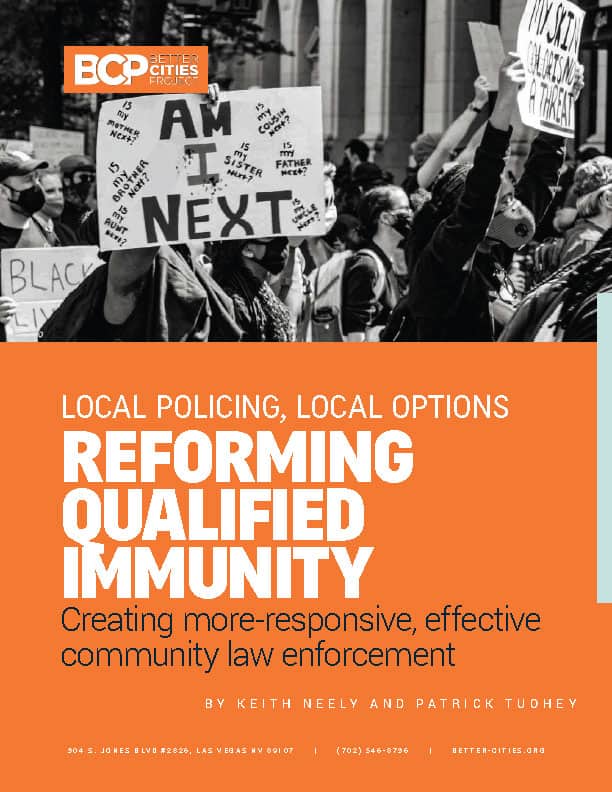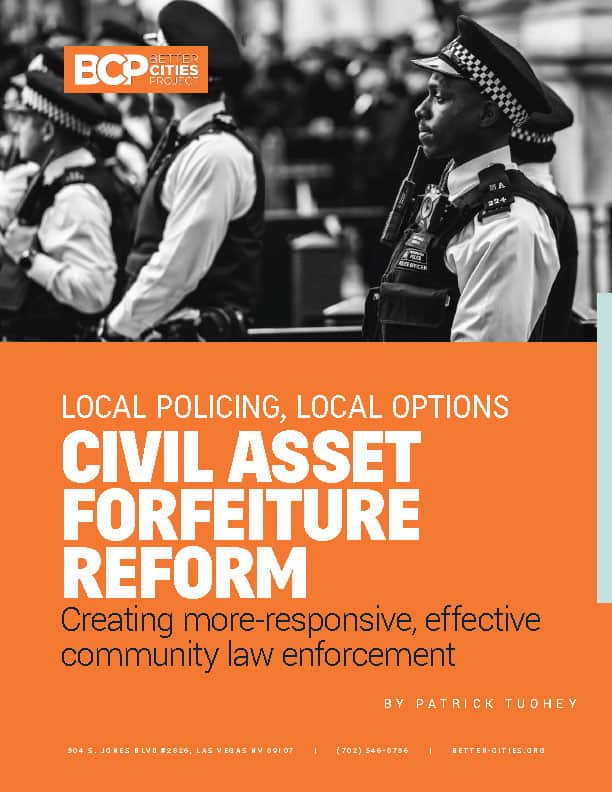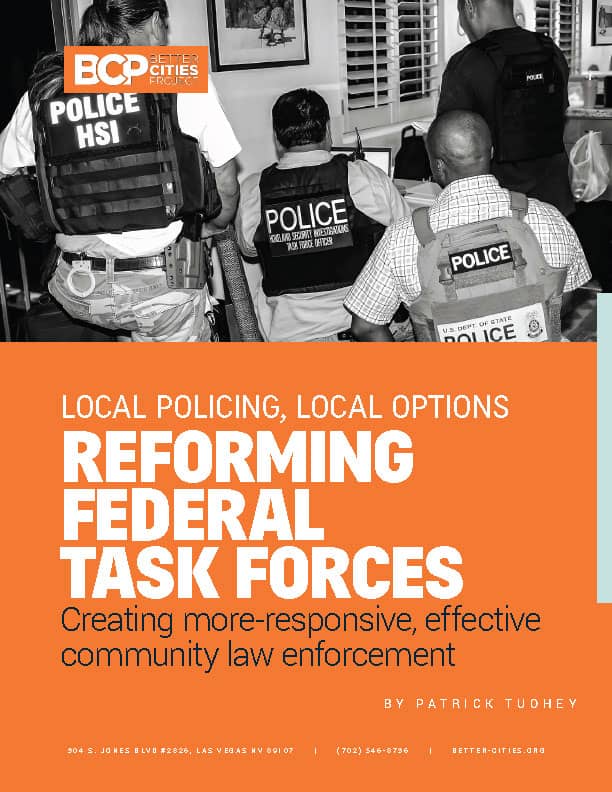Click on any of the report images to download a PDF of the report.
Policy discussions over policing mirror and magnify challenges with other issues: Too often, discussion can be dominated by the loudest and most partisan voices. As cities and counties across the country debate the policing that’s right for their communities, nuance and incremental improvement can sometimes be sacrificed for maximalist claims and negative partisanship.
The result? Problems get worse as none of the proposed solutions satisfy either side.
The result, according to The Washington Post, is a poor environment for recruiting the men and women our cities depend upon to keep us safe:
Police departments across the country are struggling to fill their ranks, creating what many current and former officials say is a staffing emergency that threatens public safety.
They cite an exodus of veteran officers amid new police accountability measures that followed the 2020 murder of George Floyd, increased hostility from the communities they police, and criminal justice laws that seek to reduce the number of people in jail.
Local qualified immunity reform
BCP worked with Keith Neely of the Institute for Justice on our qualified immunity recommendations, arguing for city residents to have recourse when their constitutional rights are violated.
The police play a vital role in our society and every officer will tell you that they can only be effective when the community stands with them. Too often, bad police officers are shielded from the consequences of their actions by qualified immunity.
Ending the use of qualified immunity creates an incentive for police to be more mindful. As the nation’s largest police union wrote to members after New York City enacted similar reforms, searches of individual or private property should be conducted only when the officer is, “clearly and unequivocally within the bounds of the law.” That is a result everyone should cheer.
Locally enabled civil asset forfeiture reform
Civil asset forfeiture, though included here in police reform, is more a function of local civil prosecution than just policing. By suing civilly to retain seized items such as cash or vehicles, local authorities avoid having to meet the higher bar of criminal law. And because the case is civil and not criminal, defendants are not eligible for public defenders nor protected against self-incrimination.
The cost to hire an attorney is often higher than the value of the seized property. As a result, property may be forfeited civilly even when the owner is not criminally convicted or even charged.
Research across the United States has found that civil asset forfeiture is more often practiced against poorer communities. Again, this is no way to instill public confidence in a vital city service.
Local restrictions on participation in federal task forces
Lastly, BCP recommends against cities participating in federal task forces.
While a city struggling amidst a spike in crime may welcome federal assistance and the promise of increased resources and attention, federal officers are held to different standards than local authorities may like. A city might work mightily to increase public support for police through reforming qualified immunity or civil asset forfeiture, only to have those efforts undone through an officer’s participation in a federal task force. And courts have ruled that local officers are considered federal agents even when agreements between local and federal authorities stated explicitly that this was not to be the case.
Until the Courts recognize such agreements, local authorities will be best served by avoiding them altogether.
These few solutions won’t solve all the challenges of addressing crime and providing public safety. But for cities paralyzed by rancorous debates over policing, they offer the opportunity to work together on what cities can do to help themselves without waiting on state and federal legislatures.












Beyond the spectacle, Kansas City prepares for World Cup reality